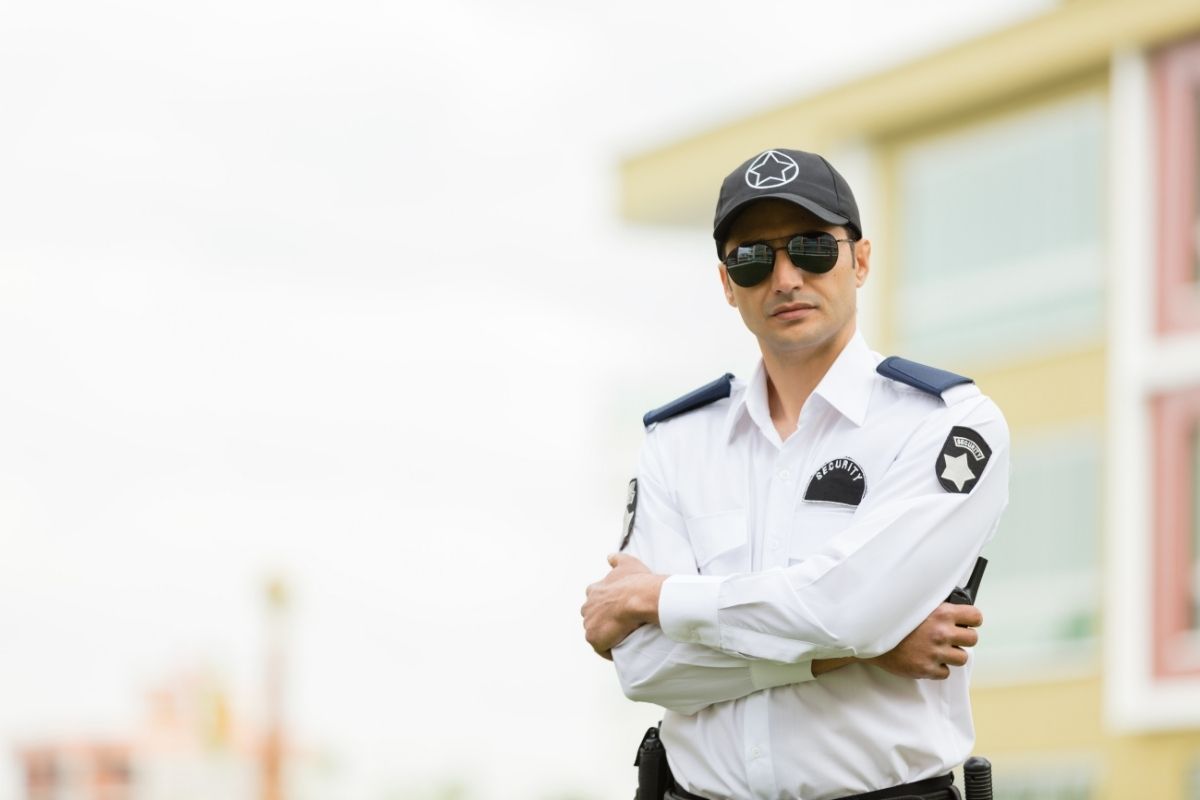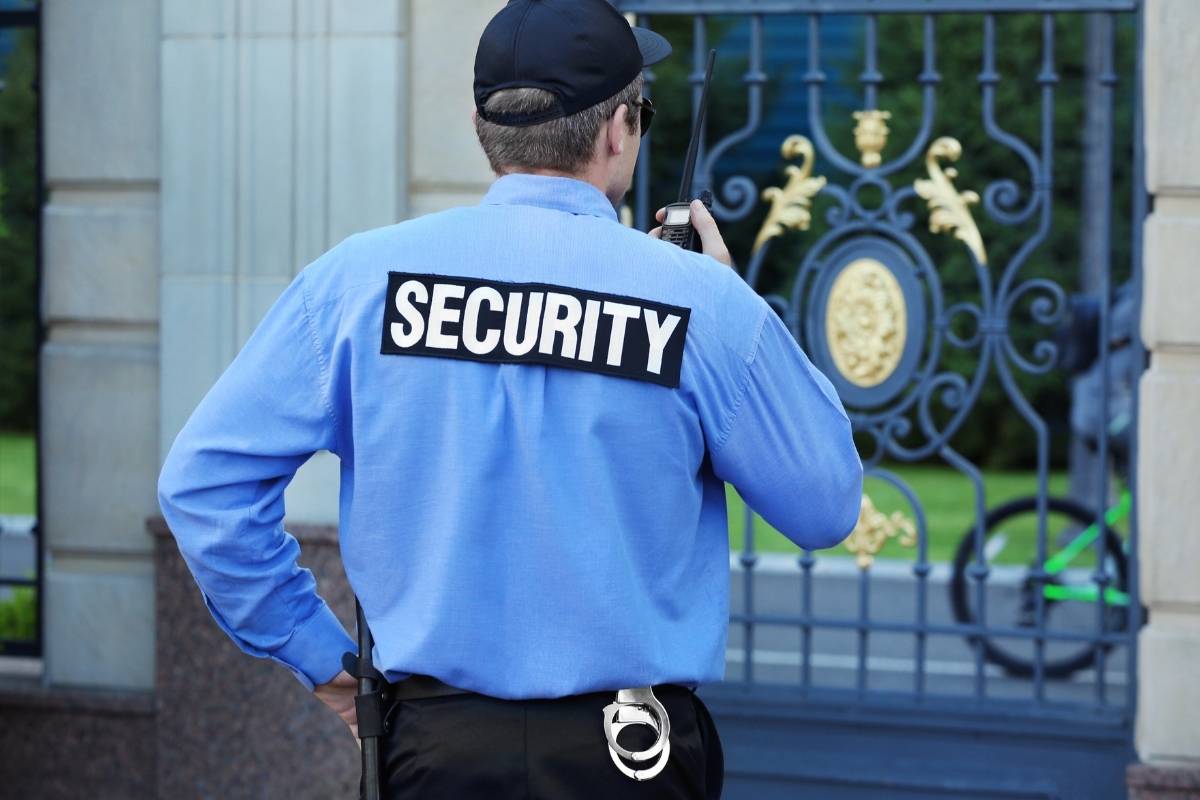
- Fri, Sep 2025
- |
- Reliable Houston Security Guard Service, Inc
Security guards can legally handcuff and detain individuals in specific circumstances, but their authority varies significantly by state and is more limited than police officers. Professional security services in Houston understand that guards may use handcuffs as a last resort when someone poses an immediate danger to others, is committing a crime in progress, or needs to be detained until law enforcement arrives. However, they must follow strict guidelines, including using only reasonable force, detaining for reasonable periods (typically just until police arrive), and having proper justification, such as witnessing a crime directly or acting under “citizen’s arrest” laws. Most states require security guards to complete specific training and licensing before they can carry or use restraints, with additional requirements for armed security positions. Guards prefer de-escalation techniques and verbal communication over physical restraints whenever possible, as improper use of handcuffs can lead to legal consequences for both the guard and their employer.
Key Takeaways:
- Security guards can handcuff you – but only in specific legal circumstances and as a last resort
- State laws vary significantly – what’s legal in one state may not be in another
- Guards must witness a crime in progress – they typically cannot detain based on suspicion alone
- Detention must be brief – only until police arrive, not for extended periods
- Reasonable force only – excessive force or prolonged detention can result in legal liability
- Proper training is required – guards need state-specific licensing and certification to use restraints
- Prevention is preferred – professional guards use verbal de-escalation before physical intervention
- “Citizen’s arrest” laws apply – security guards operate under the same arrest powers as private citizens
- Documentation is mandatory – all detentions must be properly recorded and justified
- Police must be called immediately – guards cannot conduct extended investigations on their own

When Security Guards Need to Use Handcuffs
Security guards sometimes carry handcuffs for specific situations requiring restraint. These tools help guards maintain safety when dealing with difficult individuals. Guards receive proper training before using any restraint equipment on duty, as outlined by professional security organizations.
Guards may need to restrain someone who poses an immediate danger to others. They might detain a person until law enforcement officers arrive on the scene. This action protects both the public and property from potential harm, especially in shopping center environments where crowds gather.
Restraints remain a last resort option for most security professionals. Using handcuffs can escalate tensions and make aggressive individuals more upset. Unarmed security guards prefer peaceful solutions whenever possible to avoid unnecessary confrontation.
Most security teams try alternative methods before considering physical restraints. They often ask disruptive individuals to leave the premises voluntarily first. Many people choose to cooperate rather than face potential police involvement, particularly in event security situations.
Professional guards understand that prevention works better than physical intervention. They use verbal communication skills to calm tense situations before they escalate. This approach reduces risks for everyone involved in security incidents, as emphasized by national security associations.
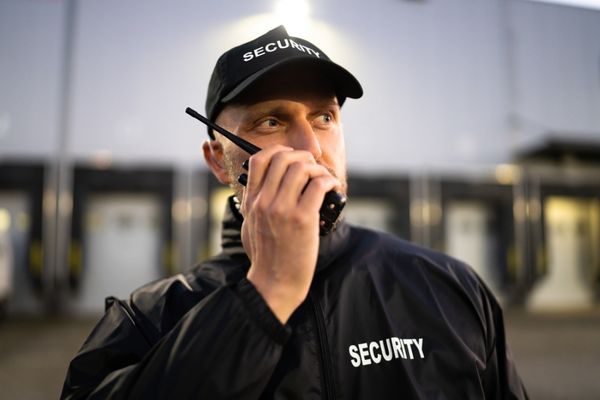
Are Security Guard Laws Different Across States?
Security guard regulations change significantly across different states and regions. Each state creates specific laws about who can work as a security guard. These laws also determine what security guards can legally do during their shifts.
Training Requirements:
- Most states require specific training before guard employment begins
- Security guards must meet these educational standards
- Professional certification programs ensure guards understand their legal responsibilities
- Training requirements differ based on state jurisdiction and location
Licensing and Background Checks:
- Licensed security professionals undergo background checks and examinations
- Many states mandate specific hours of classroom instruction
- Guards learn about legal powers and proper procedures
- Security teams must comply with local regulations set by state regulatory bodies
Armed Security Regulations:
- Armed security positions require additional permits and training programs
- States establish strict protocols for weapon carry authorization
- Security guards need specialized firearms education
- Certification processes include shooting range qualifications and legal studies
Handcuff Usage Guidelines:
- Handcuff usage follows specific state-regulated guidelines and restrictions
- Security professionals can restrain individuals under certain legal circumstances
- Hotel security guards must demonstrate reasonable cause first
- Proper documentation and justification are always required for restraints
Understanding local security guard laws protects both guards and the public. Guards must know their legal boundaries to avoid serious consequences. Employers also need this knowledge to maintain proper licensing and insurance. Following state regulations ensures professional security services for everyone involved.
How Long Can Security Guards Hold Someone?
Security guards generally detain individuals only until police arrive on the scene. Restraints are used when immediate control is necessary to protect everyone’s safety, such as when someone poses a serious threat, carries a weapon, or attempts a violent act. For instance, a guard at a construction site might safely restrain a person trying to attack others in a public area, holding them until law enforcement takes over.
Guards avoid prolonged detentions for minor incidents like shoplifting, since holding someone for hours over petty theft goes beyond reasonable standards. Instead, they focus on maintaining safety while responding appropriately to the severity of the situation. Proper training teaches guards how to assess threats, decide on restraint methods, and respect individual rights, following guidelines from professional security publications.
Most security companies set clear detention policies and time limits to guide their staff. Guards are expected to follow these guidelines, use sound judgment in each unique situation, and document every detention to ensure correct procedures were followed. This balance between safety, fairness, and professionalism helps protect both the public and the rights of the detained individual, as recommended by the Private Security Professionals Association.
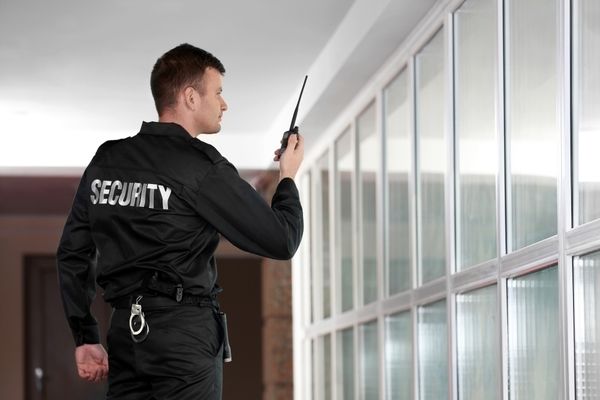
Alternative Techniques Security Guards Can Apply
Security guards aim to prevent incidents before they require physical intervention. They use various proactive strategies to maintain safety and order. Warehouse security professionals create secure environments through careful observation and strategic positioning.
Security professionals employ multiple preventive methods to avoid confrontations. They focus on deterring criminal behavior through visible presence. Guards receive training in communication techniques that defuse tense situations peacefully, as advocated by workplace safety organizations.
Common prevention methods include:
- Regular foot patrols throughout assigned areas
- Monitoring video surveillance systems continuously
- Maintaining visible positions at key locations
- Communicating clearly with visitors and staff
- Observing behavioral patterns for unusual activity
Guards often resolve issues simply by being present. Many potential problems disappear when people notice security personnel in Pearland nearby. A professional guard knows how to approach situations calmly and effectively.
Verbal communication remains the most powerful tool for security guards. They can remind individuals about rules without escalating tensions. Guards use respectful dialogue to redirect behavior before problems develop, a practice highlighted in professional security media.
Security professionals understand that prevention beats intervention every time. They work to create environments where criminal activity becomes less likely. Through vigilance and professionalism, guards protect people and property effectively.
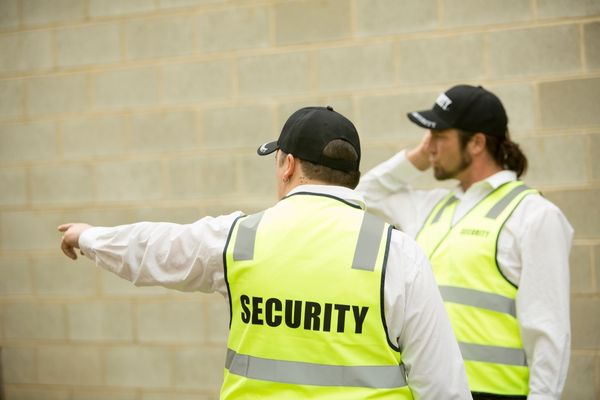
Situations Where a Security Guard Can Legally Detain Someone
The authority of a security guard to legally detain someone in the United States depends on state laws. While there are common principles across the country, each state sets its own rules on when and how a guard can hold an individual. Knowing these differences helps guards act within the law and protect both public safety and their own legal standing, as emphasized by Houston business organizations.
1. Witnessing a Crime in Progress
In most states, building security guards can detain a person they directly observe committing a crime such as theft, assault, or vandalism. This often falls under “citizen’s arrest” laws, which apply to private citizens, including security personnel. Some states allow detention only for felonies, while others permit it for certain misdemeanors, particularly shoplifting. Many states also recognise “shopkeeper’s privilege,” giving store security the right to hold a suspected shoplifter for a reasonable period until police arrive.
2. Hot Pursuit or Immediate Flight
If someone has just committed an offense and is fleeing, state laws often permit guards to pursue and detain them until law enforcement arrives. However, the scope of this authority varies. For example, some states limit it to crimes occurring on the property the guard is protecting, while others allow pursuit off-site if it’s a direct continuation of the incident, a topic covered in security industry publications.
3. Reasonable Force and Duration
Every state imposes limits on how much force a security guard can use. The standard is generally “reasonable force”, only enough to prevent escape or harm. The length of detention must also be reasonable, typically just long enough to wait for law enforcement or verify facts. Excessive force or prolonged detention could expose the guard and their employer to legal claims.
4. Limits on Authority
Security officers in Sugar Land are not police officers, and their powers are narrower. In some states, they cannot detain based solely on suspicion without witnessing a crime. Others require guards to identify themselves and state the reason for detention. Searches of a detained person may also be restricted unless the individual consents or state law specifically allows it.
5. Obligations After Detention
State laws consistently require security guards to involve law enforcement quickly after a detention. Holding someone without promptly calling the police can be considered unlawful in most jurisdictions. The guard’s role is to secure the scene and prevent further incidents, not to conduct an extended investigation, as mandated by OSHA training guidelines.
Conclusion
Security guards can handcuff and detain individuals, but their authority is limited and highly dependent on state laws. They typically operate under “citizen’s arrest” powers, meaning they must have witnessed a crime or have reasonable cause before using restraints. Handcuffing is always a last resort, used only when someone poses an immediate threat or is attempting to flee after committing an offense. Guards must follow strict rules regarding reasonable force, short detention periods, and proper documentation. They are trained to prioritize de-escalation techniques and involve law enforcement quickly. Misuse of restraints can lead to serious legal consequences for both the guard and their employer. Understanding these boundaries helps maintain public safety while protecting individual rights. For anyone interacting with security personnel, knowing the scope of their authority can prevent misunderstandings and ensure incidents are handled lawfully. To learn more about professional security services or to contact security experts, reach out to experienced professionals who understand these legal complexities.
FAQs
Can a security guard handcuff me without seeing me commit a crime?
In most states, no. They usually must directly witness the offense or have strong legal grounds supported by state laws.
How long can a security guard hold me?
Only until police arrive or the immediate threat has ended. Holding someone for an extended period is generally unlawful and can lead to legal issues.
Do security guards need special training to use handcuffs?
Yes, most states require specific licensing and certification. This includes training on legal use of restraints and proper safety procedures.
Can security guards use any level of force when detaining someone?
No, they can only use reasonable force necessary to stop harm or prevent escape. Excessive or unnecessary force can result in criminal or civil penalties.
Do security guards have the same powers as police officers?
No, their powers are far more limited. They operate under “citizen’s arrest” rules and must call law enforcement promptly.



